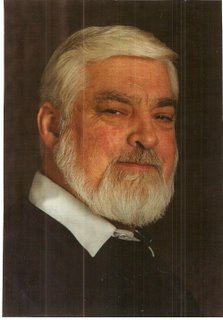A few months ago I bought two mice. I housed them in a terrarium with toys, but the mice grew listless.
They gazed at me with dull, whiskered looks that seemed to say, "Really, is this the best you can do?" With a renewed appreciation for what parents go through to please their children - I, after all, was only trying to secure the happiness of rodents - I discovered pet accessories.
The mice now reside in a Habitrail manor with a maze, dining room and bedroom loft. While they may not live in a mouse paradise, at least Thelma and Louise no longer appear bored.
The cage is a designed system. The mice have everything they might want, but they still squabble over the exercise wheel and steal corn kernels from each other’s paws. In other words, the mice stay busy being mice. I, godlike, take care of everything else. Which leads me, by roundabout route, to questions implied by intelligent design;
Was life designed by a higher power? Are we able to comprehend divine purpose, any more than a mouse understands human intentions? Would my charges survive just as well without me?
Scientists observe natural phenomena, examining fossils and genetic mutations to verify evolutionary principles. There are gaps in the fossil record, because many creatures didn’t leave traces or we have yet to find them.
Evolution doesn’t explain everything. It doesn’t address what, or who, stirred the primordial soup. Or why. To use the mice as an analogy, science examines the cage and its inhabitants but not the keeper - the material and mathematical, not the metaphysical or moral.
Intelligent design substitutes observation for guess-what-God-is-thinking. Did she only draw the blueprints, or is she tinkering? Are disasters punishments for sin or planetary indigestion? Does species extinction mean that the habitats are unhealthy or that Armageddon is near?
We can’t test such questions now, although physicists are exploring the relationship between consciousness and matter.
The current passion attached to intelligent design is rooted in public education’s elimination of prayer and creches from their grounds. Have schools gone too far? Perhaps.
But special interests of all political flavors force personal values through board takeovers, court decisions and legislation. Compromise is unthinkable. We feel persecuted if we aren’t in control and crafting institutions in our own image.
The line between church and state, though artificial is like the boundary in Robert Frost’s ‘Mending Wall’: the good fence that makes good neighbors. Here we sit in the 21st century with a rich banquet of scientific knowledge and spiritual tradition, and instead of partaking of each course, our response is to have a food fight.
Naturalist Louis Agassiz, who saw God’s plan revealed in nature, said: "Every great scientific truth goes through three stages. First, people say it conflicts with the Bible. Next they say it had been discovered before. Lastly they say they always believed it."
Intelligent design doesn’t belong in textbooks; science should be in Sunday school. Why? If nature is God’s expression - God’s language - then natural things are the Rosetta stone.
Every dyed-in-the-wool creationist should have bird-watching binoculars and a garden trowel. The anatomy of a leaf should be his verse, the workings of a dragonfly’s eye, inspiration. The spiritual seeker doesn’t replicate miracles in a laboratory or test faith like measuring cholesterol. Experience is evidence. Truth, not fact, is its realm.
British scientist and atheist J.B.S. Haldane reportedly said, "If one could conclude as to the nature of the Creator from a study of his creation, it would appear that God has a special fondness for stars and beetles."
People have a special fondness for questions. They are even fonder of their particular answers and the rather Darwinian struggle for the supremacy of their paradigm and its (per)mutations. What we lose in this process is intellectual rigor for science, discovery in faith and the humbling of doubt in both. William Shakespeare, naturally, said it best: "There are more things in heaven and earth, Horatio, than are dreamt of in your philosophy."
Thelma and Louise, thank goodness, don’t have and agenda beyond millet and sunflower seeds. Design looks premeditated in hindsight. But creativity is messy, unpredictable. The smallest relationship has weight. My routine now includes fretting over the best wood chews and daily mouse observations. In still moments, I look over my shoulder and catch them watching me.
Saturday, June 9, 2007
Subscribe to:
Post Comments (Atom)

No comments:
Post a Comment